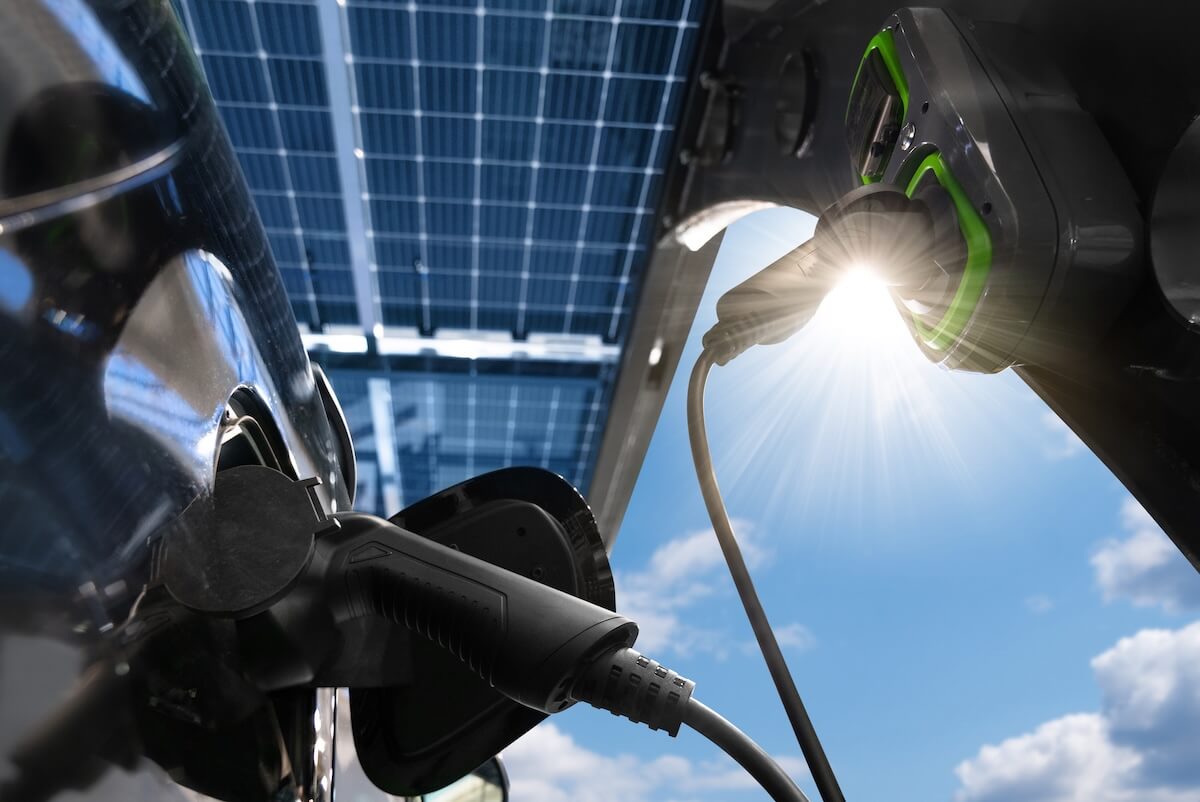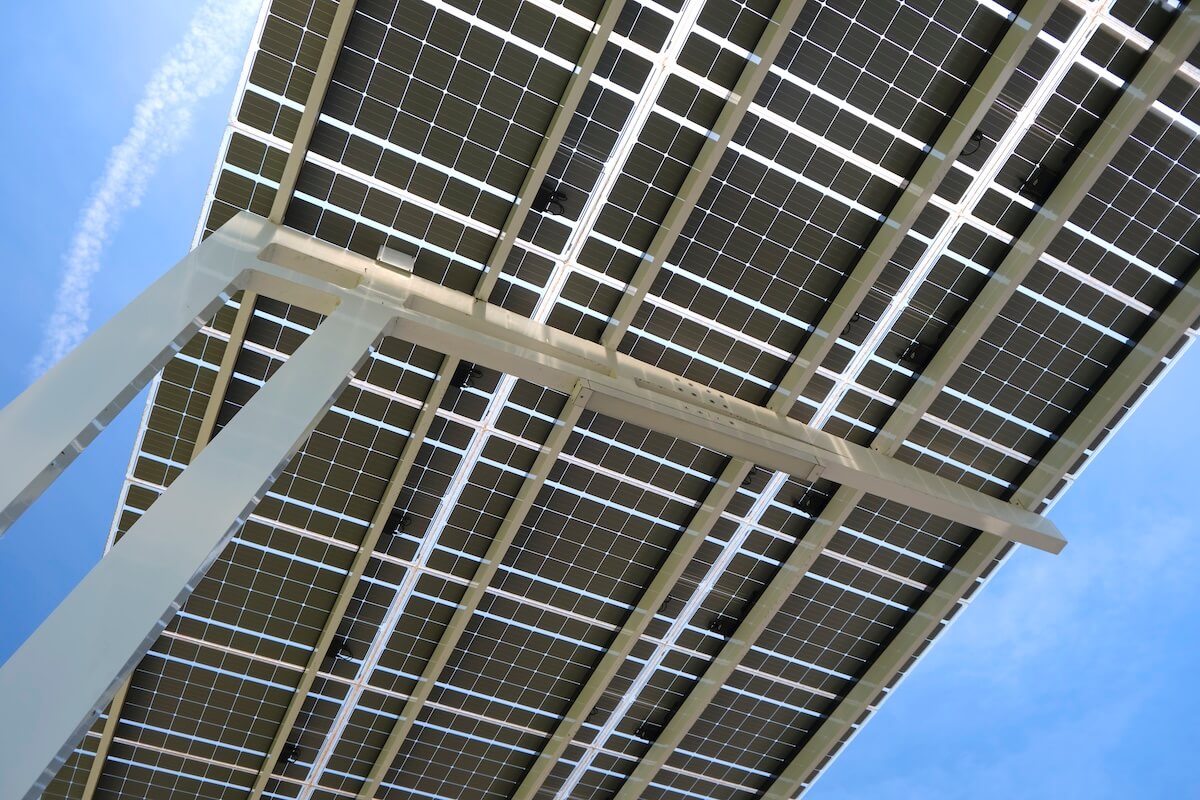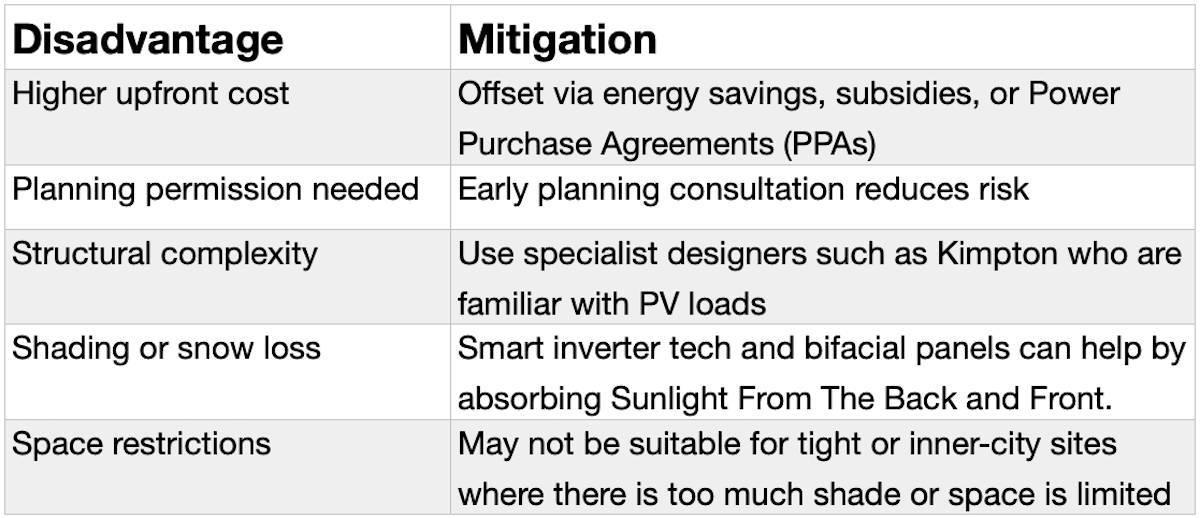What are Solar Carports?
Solar carports are overhead canopy structures that cover parking spaces and are fitted with photovoltaic (PV) panels on their roofs. Unlike ground-mounted solar arrays or traditional rooftop systems, solar carports serve the dual purpose of generating renewable energy while providing sheltered or shaded parking for vehicles.
A solar carport is ideal for commercial, industrial, and public-sector sites where large parking areas are already in use but rooftops may not be suitable or available for solar PV installations.
Why Solar Carports Work
- Optimal Orientation: Solar carports can be strategically oriented and tilted to maximise solar gain, independent of the underlying building’s structure or shading issues.
- Space Efficiency: They make use of existing spaces—car parks—without tying up or requiring additional land.
- Multifunctional Infrastructure: Combining energy generation with functional infrastructure adds value and practicality, ideal for ESG-driven developments.
Key Benefits of Solar Carports
1. Renewable Energy Generation
- Efficient use of unused airspace above parking bays.
- Clean, low-carbon electricity to offset on-site energy usage or export to the grid which can bring additional income.
2. EV Charging Integration
- Ideal for integrating electric vehicle (EV) charging stations powered by solar energy.
- Supports fleet electrification and net-zero transport strategies.
3. Carbon Reduction
- Contributes to decarbonisation goals, cost predictability and stability as well as the potential for energy independence.
- Supports compliance with carbon reporting (SECR, ESOS) and corporate sustainability targets.
4. Enhanced Asset Utilisation
- Adds purpose and return-on-investment to car parking infrastructure.
- With paid parking locations it increases ROI dramatically and introduces a second income stream.
- Increases the value and appeal of commercial properties.
5. Weather Protection
- Protects vehicles from UV damage, rain, and snow.
- Increases user comfort and safety during the growing problem of more extreme weather.
6. Brand & PR Value
- Demonstrates leadership in sustainability.
- Visually impactful and easily promotable as part of green initiatives.
Applications of Solar Carports
- Retail & Commercial Parks: Offset peak energy usage, support green branding.
- Offices & Corporate Campuses: Provide a base load for EV charging and reduce operational costs.
- Industrial Estates: Supply power to buildings, storage, or fleet operations.
- Hospitals, Universities & Schools: Generate on-site power and support sustainability education.
- Public Sector & Local Authority Sites: Demonstrate climate leadership and provide EV charging to the public.
- Transport Hubs: Airports, railway stations, or bus depots for charging and lighting infrastructure.

Legal and Planning Considerations (UK & Europe)
United Kingdom
- Planning Permission:
- Generally required, especially if the structure exceeds permitted development rights.
- Considerations include height, visual impact, proximity to boundaries, and heritage designations.
- Engage with the local planning authority early.
- Building Regulations:
- Structures must comply with Part A (Structural), Part B (Fire Safety), and potentially Part M (Access).
- Foundations, wind loading, snow loading and drainage must be designed appropriately.
- Electrical Standards:
- Must meet BS 7671 (IET Wiring Regulations) for electrical safety.
- PV systems must be MCS-certified to be eligible for incentives like SEG (Smart Export Guarantee).
- Grid Connection:
- DNO approval is needed for systems exporting to the grid.
- G99/G98 applications depend on the system’s scale.
Europe
- France is a standout:
- In France, Solar PV is mandatory for living roofs of commercial and industrial buildings and covered car parks occupying 500 m2 or more of ground surface.
- EU-wide standards like CE marking, harmonised electrical safety standards (IEC 60364), and renewable energy incentives apply.
- Grid interconnection and feed-in tariffs vary by country.
- Sustainability Incentives:
- Many EU countries provide grants, subsidies, or favourable tariffs under their national energy transition plans or EU Green Deal mechanisms.
Drawbacks to Consider

Conclusion
Solar carports present an amazing opportunity for UK based businesses to make a huge stride in their carbon reduction programme, generate additional income and potentially reduce ongoing running costs. At the same time, the additional benefit of weather protection does mean they are a clearly positive business decision.
Solar Carports are a visually impressive and environmentally responsible solution that meets the growing demand for clean energy, EV infrastructure, and sustainable buildings.
With this in mind, they will make improvements to the building EPC rating and therefore increase value and future saleability of the property.
As net-zero becomes a regulatory expectation across Europe and the UK, solar carports offer both environmental and commercial returns. Whether you’re developing a business park, upgrading public infrastructure, or future-proofing industrial estates, solar carports will stand out as a practical and future-ready solution.
Call Kimpton for Solar Carports
If you’d like to speak to our team about your own requirements for Solar Carports, ground or roof based Solar PV and upgrades or decarbonisation strategies, then please call us on 0151 343 1963, drop us an email on website@kimpton.co.uk or complete the form below.


